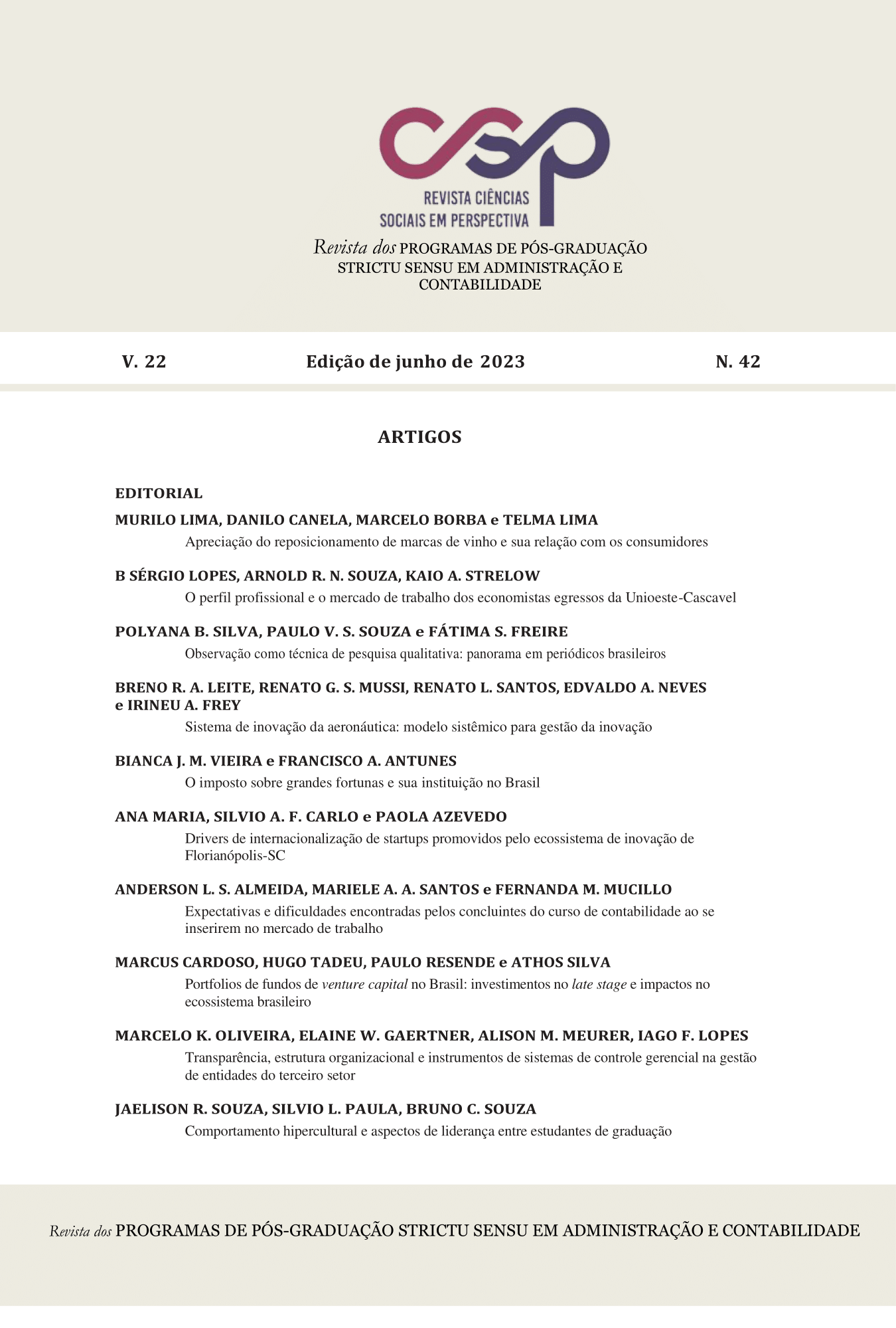Portfólios de fundos de venture capital no Brasil
investimentos no late stage e impactos no ecossistema brasileiro
DOI:
https://doi.org/10.48075/revistacsp.v22i42.30729Resumo
Nas últimas décadas, a indústria de Venture Capital (VC) vem ganhando cada vez mais protagonismo no cenário mundial e tem provocado alterações nos mercados globais de capitais, principalmente depois da ascensão das Bigtechs, que em apenas dez anos desbancaram as indústrias tradicionais, de uso intensivo de capital que figuravam há décadas como as empresas mais valiosas do globo. Esse protagonismo foi empreendido à custa de geração de inovação tecnológica, combinada com modelos escaláveis, replicáveis, que permitem crescimento exponencial. Essas empresas disputaram seus mercados resolvendo grandes problemas do cotidiano. Todas têm em comum o fato de terem sido financiadas por VC nos seus primórdios, quando ainda eram empresas de garagem. Essa revolução não ficou restrita aos EUA e se espalhou por todo o Globo, liderados principalmente por Europa e China, na Ásia. No Brasil, com um certo atraso em relação ao mercado americano, a indústria de VC vem quebrando seguidos recordes em volumes de investimento, o que tem atraído cada vez mais a atenção de grandes investidores globais. É inegável que grande parte desse sucesso pode ser atribuído à aquisição da 99 pela Didi, em 2019, que configurou o primeiro unicórnio brasileiro e colocou o país definitivamente no mapa das gestoras de VC globais. Apesar de todo esse desenvolvimento, nota-se que as gestoras domésticas são responsáveis pela maior parte dos investimentos na indústria, no entanto, possuem uma tímida participação nos investimentos em empreendimentos mais maduros. Portanto, o objeto desta pesquisa foi explorar por meio de pesquisa qualitativa as principais barreiras encontradas pelas VC domésticas para avançarem sua participação nos empreendimentos late stage. Dentre os pontos analisados, está a maturidade do mercado brasileiro que compromete a velocidade de maturação das VCs, fato que parece explicar a razão de ainda não temos fundos domésticos atuando nas Séries C em diante. Felizmente, essa ausência de participação nos estágios mais maduros não representa uma ameaça ao ecossistema brasileiro, ao contrário, é parte da sua evolução.
Downloads
Downloads
Publicado
Como Citar
Edição
Seção
Licença

Este trabalho está licenciado sob uma licença Creative Commons Attribution-NonCommercial-ShareAlike 4.0 International License.
Aviso de Direito Autoral Creative Commons
Política para Periódicos de Acesso Livre
Autores que publicam nesta revista concordam com os seguintes termos:
1. Autores mantém os direitos autorais e concedem à revista o direito de primeira publicação, com o trabalho simultaneamente licenciado sob a Licença Creative Commons Attribution que permite o compartilhamento do trabalho com reconhecimento da autoria e publicação inicial nesta revista.2. Autores têm autorização para assumir contratos adicionais separadamente, para distribuição não-exclusiva da versão do trabalho publicada nesta revista (ex.: publicar em repositório institucional ou como capítulo de livro), com reconhecimento de autoria e publicação inicial nesta revista.
3. Autores têm permissão e são estimulados a publicar e distribuir seu trabalho online (ex.: em repositórios institucionais ou na sua página pessoal) a qualquer ponto antes ou durante o processo editorial, já que isso pode gerar alterações produtivas, bem como aumentar o impacto e a citação do trabalho publicado (Veja O Efeito do Acesso Livre).
Licença Creative Commons
Esta obra está licenciada com uma Licença Creative Commons Atribuição-NãoComercial-CompartilhaIgual 4.0 Internacional, o que permite compartilhar, copiar, distribuir, exibir, reproduzir, a totalidade ou partes desde que não tenha objetivo comercial e sejam citados os autores e a fonte.





